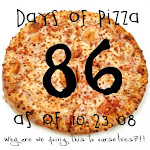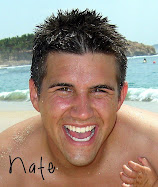Subscribe to:
Post Comments (Atom)
skip to main |
skip to sidebar






Events
- May
Email Me ...
Shop Me ...
Fave Etsy Shops
Friends
- Ahlander: Erik & Kelly
- Beck: Lauren & Aiden
- Bitter: Bryan & Allison
- Black: KC and Ipuna
- Blake: Jeremy & Mindy
- Braithwaite: Garth & Jaime
- Brooks: John & Katie
- Bunch: Jared & Rachel
- Carter: Dennis & Alison
- Castor: Sam & Annalise
- Christensen: Stewart & Shana
- Christian: Brandon & Corrine
- Clark: Aaron & Stephanie
- Davis: Kris & Sonya
- Davis: Patrick & Hollie
- Dickerson: Matt & Christina
- Ellis: Gia
- Goodsell: Trevor & Sarah
- Gunderson: Jared & Rissa
- Gunderson: Jason & Sabrina
- Hair: Keith & Bethany
- Hendrix: Adam & Amy
- Jenkins: Dan & Tiffany
- Loveland: Bryce & Erica
- Mathewson: David & Amy
- McEwen: Justin & Rachel
- Middleton: Gabe & Alexis
- Neff: Jeremy & Meg
- Nelson: Brock & Veronica
- Reeve: Brian & Krystal
- Roskelley: Wally & Lindsay
- Sechrist: Jared & Lindsey
- Smith: Corbin & Gail
- Steele: Sterling & Kristin
- Stout: Adam & Ashley
- Thomas: Joe
- Tolbert: Rick & Allison
- Waldron: Chad & Alli
- Wilcock: David & Emily
- Wood: Brian & Kayla
Web Sites
Mom Blogs
Creative Blogs
- (No) Sex and the City
- A Little Hut
- A Little Sussy
- According to Kelly
- Ali loves Curtis
- All That I Love ...
- Armelle Jewlery
- Avie Designs
- Black*Eiffel
- black. white. bliss
- Bliss
- Blissful Living
- Cicada Song
- Craftt Synergy
- Design this Design that
- Design*Sponge
- Domestic Bliss
- HELLO my name is Heather
- Here Kitschy Kitschy
- Homemade by Jill
- How About Orange
- I Love You ... I Think
- Life
- life at 123 house
- Marmadaisy
- Marta Writes
- Montage Creative
- Nie Nie Dialogues
- Oh Happy Day
- Oh Joy!
- One More Moore
- paper pony
- Simple Lovely
- stephmodo
- That's What She Said
- Today's Creative Blog
- unruly things
- Williams One of Each
- Your Heart Out
- {frolic}
Decorating Blogs
Food Blogs
Rebels
Blog Archive
Labels
- Animals (8)
- Books (1)
- Britt's Family (21)
- Brittany (28)
- Crafts (3)
- Fashion (3)
- Food (16)
- Friends (6)
- Girls Night (2)
- Holiday (20)
- House (7)
- Inspirational (3)
- Invites (2)
- Krew (71)
- Matix (82)
- Misc. (12)
- Nate (28)
- Nate's Family (2)
- Nixon (41)
- Sports (9)


3 comments:
Too bad I looked at it too late or Ella and I would have come:)
I love your pictures! I need to go shopping badly as well. I can't wait until Paxton is old enough to play with his cousins. How are your pizza days coming along?
Are webapp frameworks more elaborate than they need to be?
It's not hard to find web application frameworks that simultaneously claim to offer power and simplicity -- a great combination, but a rare one too -- and some of them are based on the idea of "components" or "controls":
JSF is touted to be the ultimate component framework for Java web application programming. Tapestry claims to be based on the idea of component development. And across enemy lines, ASP.NET generated a whole new market for web components.
With this, Michael Jouravlev begins his investigation into web components, but with a crucial difference: he omits the framework. In the Feature Article on today's front page, Building Web Components Without a Component Framework, he tears down the idea of a web component to its absolute basics: a resource, identified with a unique location, that maintains state, responds to events, and is able to render itself. He continues:What is new in that, you may wonder? Nothing but good old HTTP with a twist. If you use JSP as the presentation layer for your web applications, this article may open some new possibilities.
_____________
mikemathew
Search engine
Post a Comment